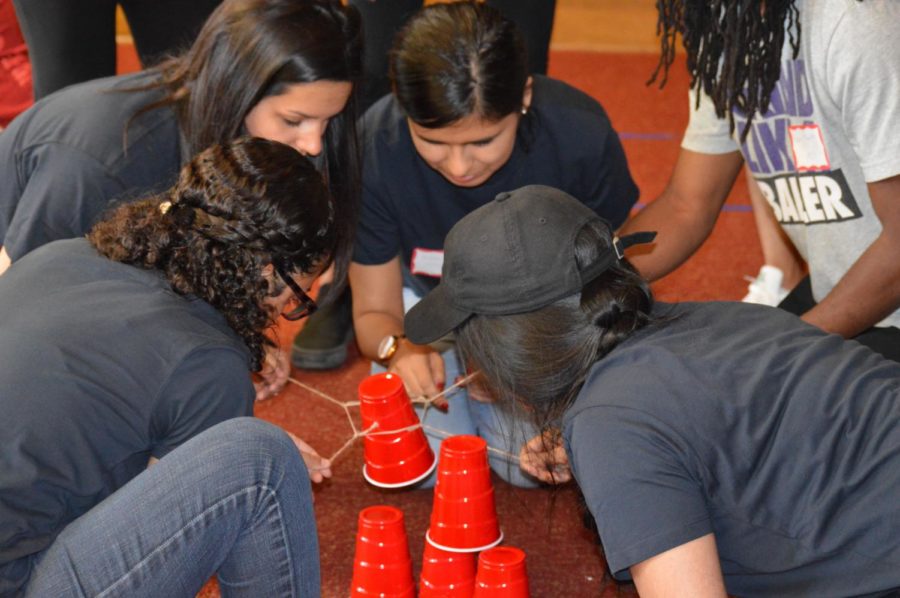Finn: Re-evaluate ‘stand your ground’ laws
Gun Violence
February 26, 2014
When I was in elementary school I was taught about conflict resolution. We all sat in a classroom, forced to listen to some lady tell us about the many different ways one can de-escalate a problem. Some of her suggestions included talking with the person about resolving the conflict, calling for help, or leaving the situation. Oddly enough, a suggestion I never heard her throw out was to pick up a gun and shoot the individual with which you disagree.
Although killing someone you have a problem with was not the advice given to me in elementary school about conflict resolution, it seems to be the norm these days, especially in Florida. The Sunshine State also happens to be a “stand your ground” state.
In fall 2012, 47-year-old Michael Dunn and his fiance pulled into a gas station in Jacksonville, Fla., late one night to pick up wine and chips. Dunn pulls into a spot while his fiance gets out of the car and heads inside the gas station. The vehicle parked next to Dunn was an SUV.
According to Dunn, the SUV was playing explicit music at an extremely loud volume. Dunn, who was annoyed by the music, rolled down his window and asked one of the teenagers in the car to turn it down. It is important to add that the teenagers were black, and that Dunn had written many racially-charged letters about his hatred for things like their “thug” music while in jail. The teenager turned the music down, but later started making racial comments directed towards Dunn and turned it back up.
One of the teenagers reached down and grabbed something off of the floor. Dunn assumed it was weapon, so he grabbed his gun from his glove department. When one of the teens began to get out of the car, Dunn fired nine shots into the SUV, killing 17-year-old Jordan Davis. Dunn and his fiance then drove away from the scene and did not call police until the following morning. It was later discovered that no other witnesses saw any of the teenagers get out of the vehicle and a gun was never discovered in the car. Recently, the verdict was returned, and a jury refused to convict Dunn of the murder of Jordan Davis, even though he was found guilty of the attempted murder of the other passengers.
The fact that Dunn will not spend time in jail specifically for killing another unarmed individual is unacceptable and will cause many people across the nation, including Florida officials, to re-evaluate their “stand your ground” laws.
We have become a society where when things start to get unsafe or when you are feeling uncomfortable in a situation, the immediate response is to arm yourself. There are situations in which arming and defending yourself and your loved ones is appropriate, but it should not be our fall-back method for dealing with uncomfortable situations.
Reading through what happened on the night of Jordan Davis’ death, there are so many other, non-lethal ways in which this problem could have been solved. Dunn’s first mistake was confronting the teenagers about their music.
If Dunn was so terribly offended by the music, then Dunn should have relocated, just like we learned in elementary school. The situation did not have to be confrontational. Jordan Davis could have graduated high school and Dunn could have enjoyed a peaceful night drinking wine with his fiance.
The second mistake Dunn made was responding to a perceived threat with a deadly weapon. Had Dunn and his fiance been sleeping in their bed and these teenagers intruded and posed a threat in Dunn’s house, it would be his right to protect himself. However, Dunn wasn’t asleep in his bed, he was in a public area. It would have been just as easy for Dunn to park somewhere else, call the police for help or leave the scene altogether if he was feeling threatened.
Instead of choosing any of those options, Dunn not only fired a shot into an SUV full of people, but fired eight more shots before leaving. Dunn shooting into this SUV multiple times tells us that he was not simply trying to defend himself. After his first shot, the teenagers in the SUV did not fire back or try to attack Dunn, yet he continued to fire at their car.
Perhaps Dunn missed the conflict resolution lessons in school or perhaps he just chose to ignore them. What ever the reason, this problem could have been taken care of in manner that would not have resulted in death.
The irresponsible, excessive use of firearms is becoming the norm in the United States. The solution to this problem is not an easy one. It would require altering the way in which our entire society views guns. However, it is a fight we should take on, before more 17-year-old boys are shot and killed by racist men who feel threatened and have an easy access to firearms. Firearms in which, as history has shown us in both the Zimmerman and Dunn trials, they will be able to kill with and walk away free.

















